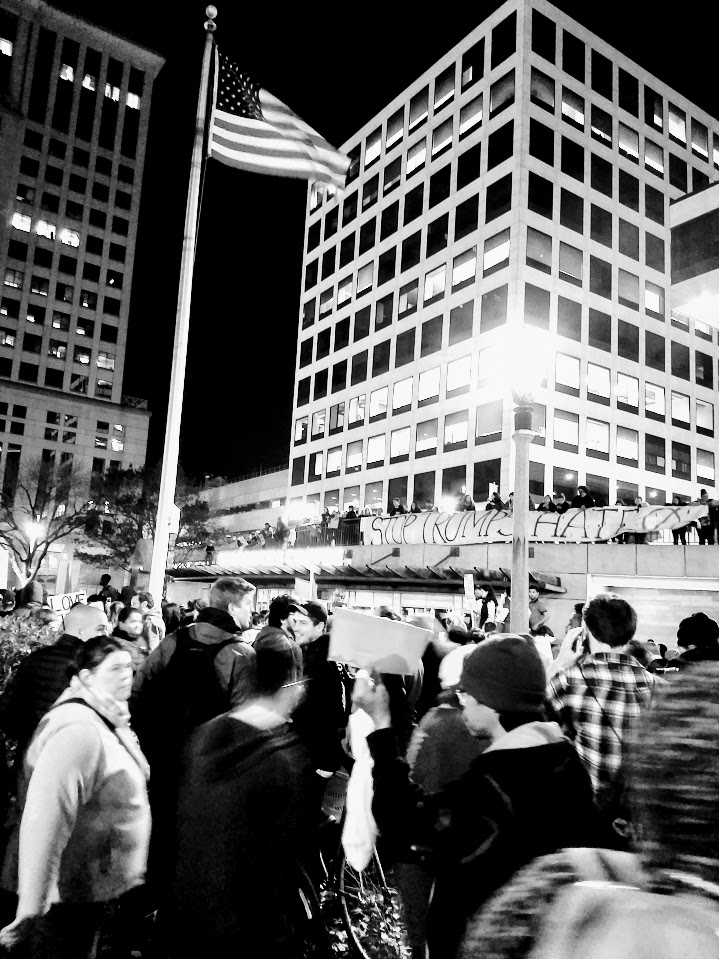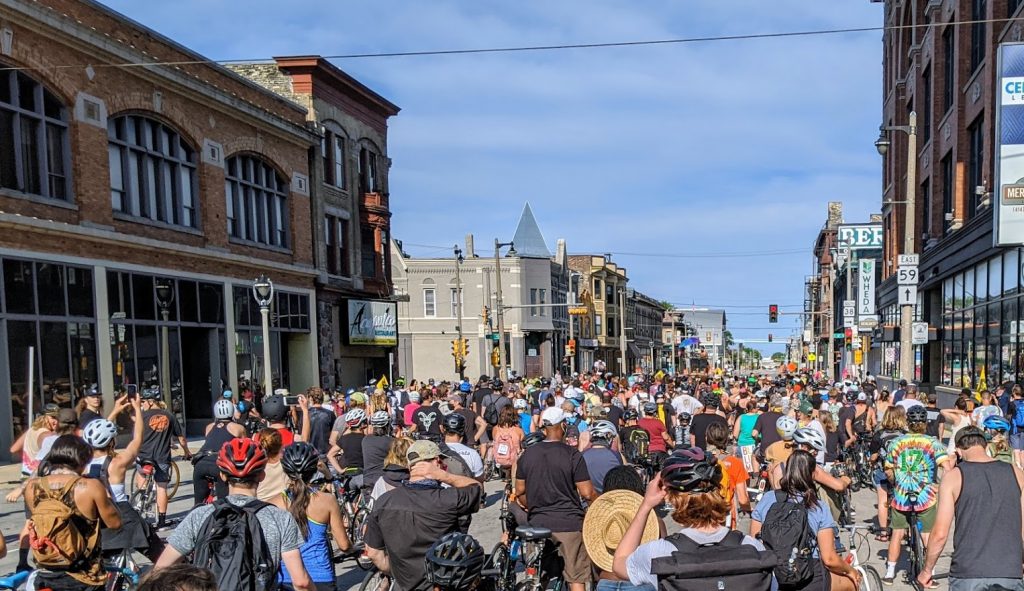So That Everyone Has a Place: A Diversity Motivational
As a straight, white male, I have never been subject to the systematized prejudices that disenfranchise those whose genders, orientations, or skin color is different from my own. My perspective of discrimination has never been first-person but always from a distance: from sharing the pain of friends and family who have been targets of derision; from engaging in public protests and discussions with those who are all-too familiar with inequality; from the literature and media I consume. But it is because I have the option to avoid such injustice that I am motivated to persistently fight and against inequality. To better fight against systemic injustice, I left a career in public outreach to pursue one where I could promote and support voices other than my own. I have marched for woman’s voices, marriage equality, and the #BlackLivesMatter movement. I have also served to ease the distress that injustice sows, volunteering at soup kitchens and local food pantries. To assist in the protection of voting rights in the city of Milwaukee, I have served as an election inspector.

Currently, the classroom is where I focus this fight for equality; my syllabi present a curated selection of diverse authors at the expense of the Western canon. In my “Introduction to English Studies” course, for example, my reading list tackled the ecological crisis, prejudice, and postcolonial culture. When teaching a writing course at the Milwaukee Area Technical College, my curriculum celebrated multiculturalism and the power of my students’ Voices. My recent first-year writing course examines how discrimination is embodied in technological access, reinforced by the algorithm and media bias. My technical communications students engage often uncomfortable discussions about the imbalance of representation, the privatization of publicly funded research, and algorithms of oppression. For a service-learning based Information Design course, students would have worked with the American Black Holocaust Museum to develop a campaign that evokes the untold stories of America’s victims of racial violence. Although this course was cancelled due
to the pandemic, I hope to teach a similar course in the near future.
My previous career in visual communications has been fundamental in my current research in universal design. In both in-person and online courses, I do my best to ensure all students have equal access to materials and instruction regardless of ability or access to technology. I recently acquired the UWM Accessibility Certificate to reinforce this focus. Although universal design principles typically aim at the accommodation of all students, regardless of physical or emotional capacity, I am developing additional principles that further consider financial, cultural, and social spheres. My online course, for example, may be completed with the maximum measure of flexibility in use provided by the academic calendar. In addition to flexible deadlines, this also means that assignments may be completed using means most readily available to students. My courses also provide an equitable platform for anyone to display commitment to their own success, regardless of their ability to actively participate in course discussion, for example.

Early in my graduate studies, my literary interests in postcolonialism and ecocriticism fueled research in rhetoric and media studies. In my Master’s thesis, for example, I critique “serious games” inability to affect authentic empathy towards underrepresented communities. This led to my doctoral research into placemaking and games; in one of the case studies presented in my dissertation, I demonstrate how augmented reality games reinforce racial and economic disparities. As a critical component of protest movements, placemaking continues to emerge as one of the key foundations of my research. In a recently published chapter, for example, I describe how the deconstruction of simple games can help cultivate our ability to dismantle more complex system to reveal prejudice and disenfranchisement.
As part of my service to the English department, I conduct various trainings focused on universal design and the implementation of these principles into online pedagogies. I believe that the security of one’s digital presence and identity is an emergent component of social justice – one that instructors must be cognizant of and vigilant in fighting for. In a recent workshop I co-organized and led, participants work on trust-building and collaboration. More importantly, we led a fruitful discussion about how instructors can be more mindful of students’ data security and privacy. This workshop embodies my commitment to equity on the virtual campus and the eLearner. My service is not limited to my home department. Against an alt-right speaker being hosted by UWM, for example, I helped organize a safe, open-mic event for protesters to share their frustration.

My work for equality in academia reached out beyond my home campus as well. To speak out against police brutality, for example, I drafted the current statement of solidarity adopted by the Council for Play and Game Studies at CCCC. For several years, I served as chair of the Ride2CW campaign which raises money to help non-tenure track faculty and graduate students attend the annual Computers & Writing conference; as a participant in 2015, I rode over 300 miles across Wisconsin to raise donations. In 2019 – my final year as chair – I helped raise over $5000 in contributions. This year, my volunteering has been dedicated to Milwaukee’s Parks, where I preserve those public places open to all citizens.
I conclude by arguing that a “commitment to diversity” is far more substantive that our efforts in higher education have demonstrated thus far. This commitment cannot be reduced to a couple written pages. Our commitment to diversity in higher education must be more authentic. Otherwise, we risk these commitments being exploited. To be more authentic, our campuses must prioritize diversity in more meaningful ways: a commitment to diversity is a pervasive ideology that demands every act and event be scrutinized to determine who is privileged and who is left out. As an educator, I believe that it is not enough to be committed to diversity. We must also be motivated to work to ensure everyone has a place.
